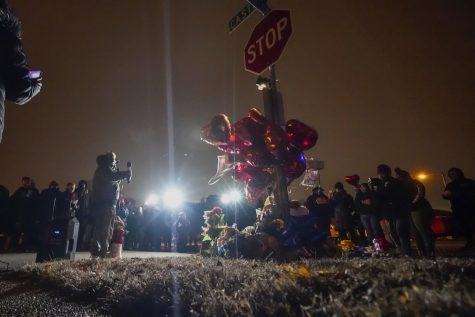Columbia’s response to recent violence feels ‘performative’
February 2, 2023

Columbia is an institution that boasts a prioritization of diversity, equity and inclusion, including through its mission statement. It requires students to take two DEI-designed courses (for a total of six credits). Its melatonin-infused, glossy marketing materials attempt to tell a story of a diverse, urban campus.
But this is a primarily white institution and as a Black student at Columbia, I’ve had to explain what a “PWI” is to a white professor. I’ve also been the only Black student in several classrooms.
The official Columbia email I got this week with the subject line “‘Recent Acts of Violence.’ made me even more exhausted than I already am.
I’ve long since realized that there are limitations to what Columbia can and will do in response to rampant racial trauma. Comfort in the midst of racial trauma is always difficult and quite frankly, I don’t know anyone who seeks that comfort from Columbia.
We have lowered our expectations.
The explicit details of numerous racially charged tragedies have been inescapable from news publications, social media and even word of mouth. So, Columbia’s ability to release a statement of pure generalization is an astonishing feat.
In the Feb. 1st email sent to students and staff, the college states, “Particular events take a heavier toll on some members of our community who may have a closer connection to certain places or communities impacted– and who may fear being a target themselves.”
By using language carefully crafted to be applicable to various communities, the College attempts to address as many horrific events as possible.
Since the emergence of the Black Lives Matter movement, one of the main ideals of activists has been the act of naming the victims who are so often diminished to just another statistic.
Releasing a statement nearly a month after the brutal murder of Tyre Nichols at the hands of police officers is disappointing.
Sending a nameless, faceless college-wide email in the aftermath of yet another Black tragedy, on the first day of Black History Month, is inexcusable.
But who is to say Tyre is the tragedy at hand in a statement without any direct references to specific events?
Perhaps, this statement was also meant to serve as recognition of the Monterey Park shooting, or the Indiana University stabbing— ambiguity is the issue.
While making every community feel heard should always be the priority and may have been the intention, a one size-fits all approach to BIPOC and AAPI condolences isn’t a viable solution.
Directing students and staff toward historically inaccessible on–campus mental health resources is a nice gesture— one that could use revision. For example, including information about how to avoid seeing explicit footage of hate crimes on your social media feed would have been more beneficial.
Sadly, we don’t all have the privilege of dissociation. Two days ago my cousin was shot during a home invasion in her primarily Black neighborhood. I stayed up all night with panicked family members and went to my 9 a.m. the next morning physically and emotionally exhausted, but at least I got a theoretically sympathetic email from Columbia.
It’s hard enough to self-soothe and recover from murder after murder without the added pressure of advocating on behalf of students who thought they were safe.
Students at Columbia should not be forced to accept these performative displays of compassion as the nurturing, diverse community we were promised. We deserve better. We demand better.







